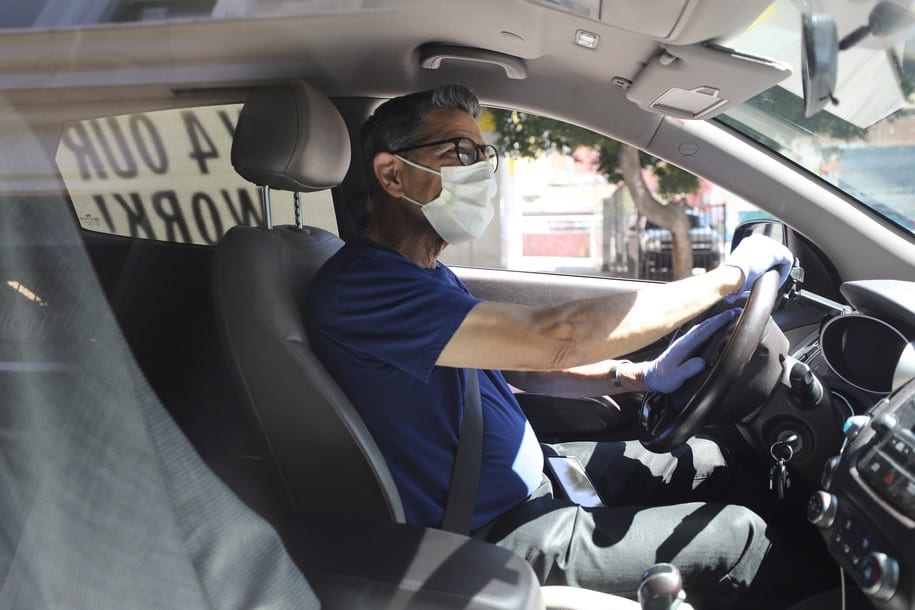[ad_1]
“Today, we continue to ask riders to stay home if they can, while shipping safety supplies to drivers who are providing essential trips,” said Andrew Hasbun, the head of Uber’s safety communications, told CNN in a statement. “At the same time, our teams are preparing for the next phase of recovery, where we will all have a role to play.”
Uber has already started supplying drivers with masks and disinfectants. Notably, CNN reports that once this new requirement is in place, drivers will be required to use a face covering (including, for example, a bandana) even if they didn’t receive supplies from the company.
The question of ride-shares is an important one. People with disabilities, those who can’t drive or don’t own their own vehicle, or who live in areas without accessible public transit may rely on services like Uber or Lyft under ordinary circumstances. Even people who do have public transit available in their area may be wary about using it as there is (potentially) such a high exposure rate and risk in being in such close quarters with others.
Though more and more people are staying home, the reality is that some people have and will continue to be called into work, especially as Republican governors reopen their states. People also need to get to places like doctor’s appointments, the grocery store, and, potentially, to others’ homes to care for them. Safety for drivers (including those who work in public transit, like bus drivers) is incredibly important, as is transparency and guidance for riders.
When the pandemic started to gain national coverage in early March, Massachusetts Sen. Elizabeth Warren released a plan for tackling the coronavirus. Unsurprisingly, she had a particular focus on workers’ rights, labor rights, and protecting people who are underinsured or uninsured entirely.
In an open letter to CEOs of UberEats, DoorDash, InstaCart, and GrubHub, Warren urged leaders to reclassify gig workers as full employees. Why? Because as contractors, they’re entitled to far fewer benefits and protections than workers. That’s a problem all of the time, but especially during a public health crisis when people are trying to decide how much work they can sacrifice for their own safety versus when they’ll run out of money and possibly face eviction or growing debt.
Most recently, Warren paired up with California Rep. Ro Khanna to release a “workers bill of rights” amid the pandemic. The 10-point plan focuses on pay, benefits, personal protective equipment, and paid time off for all essential workers.

















